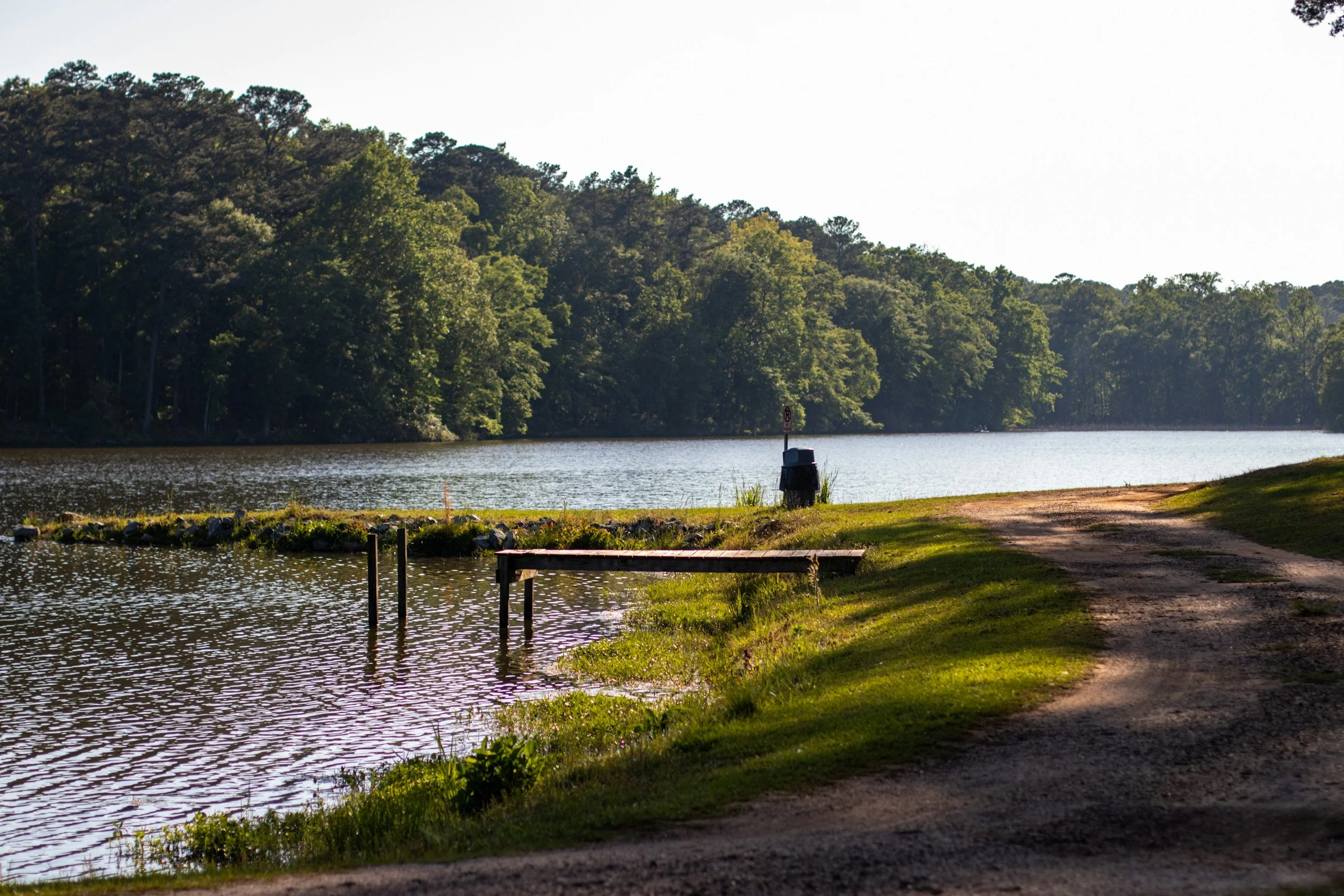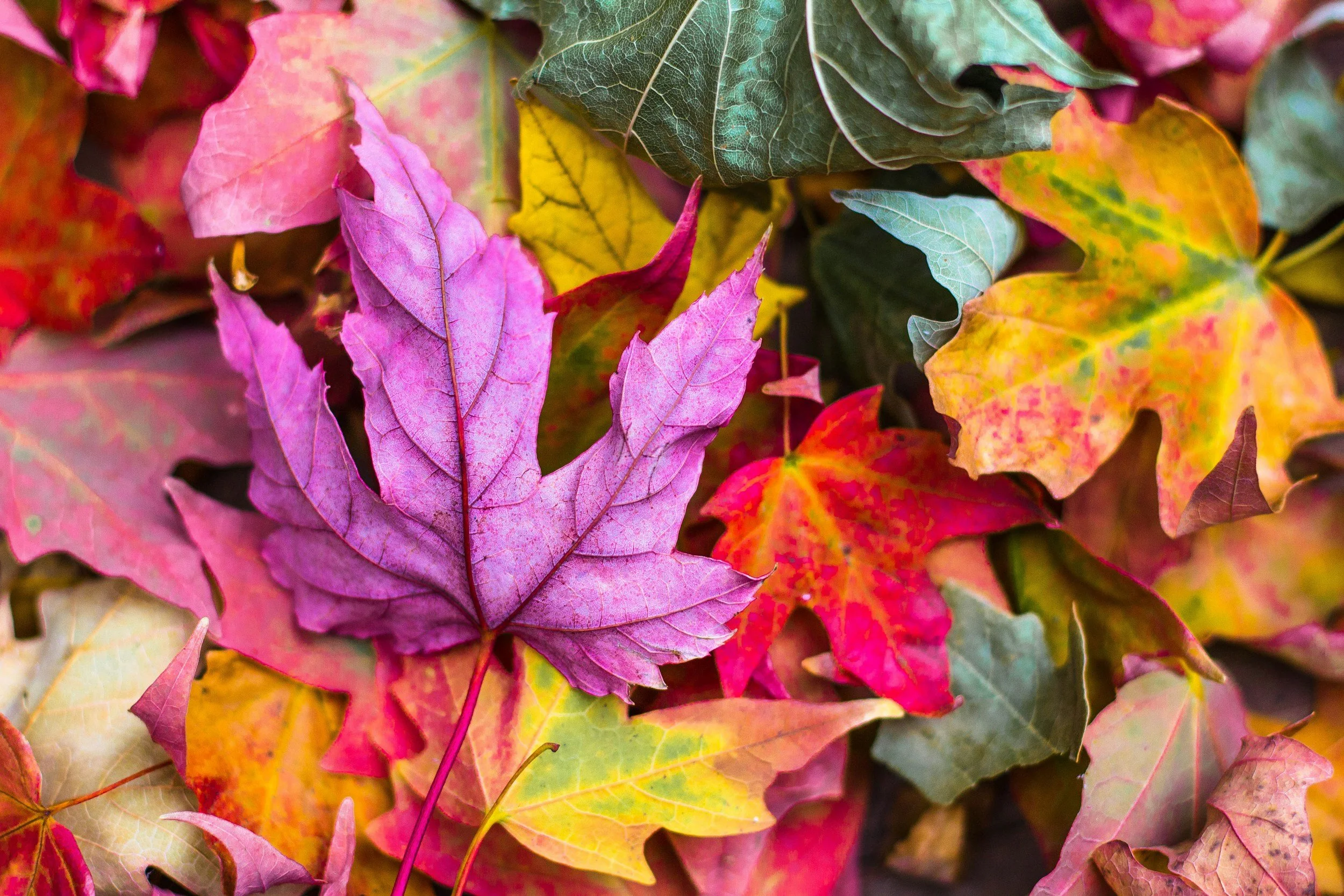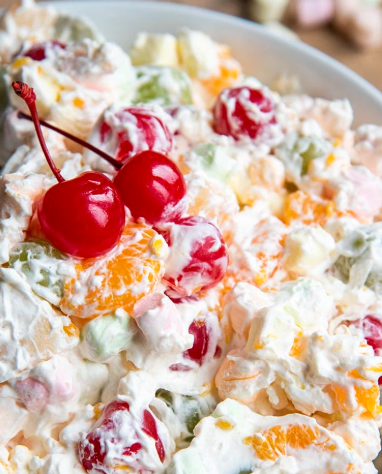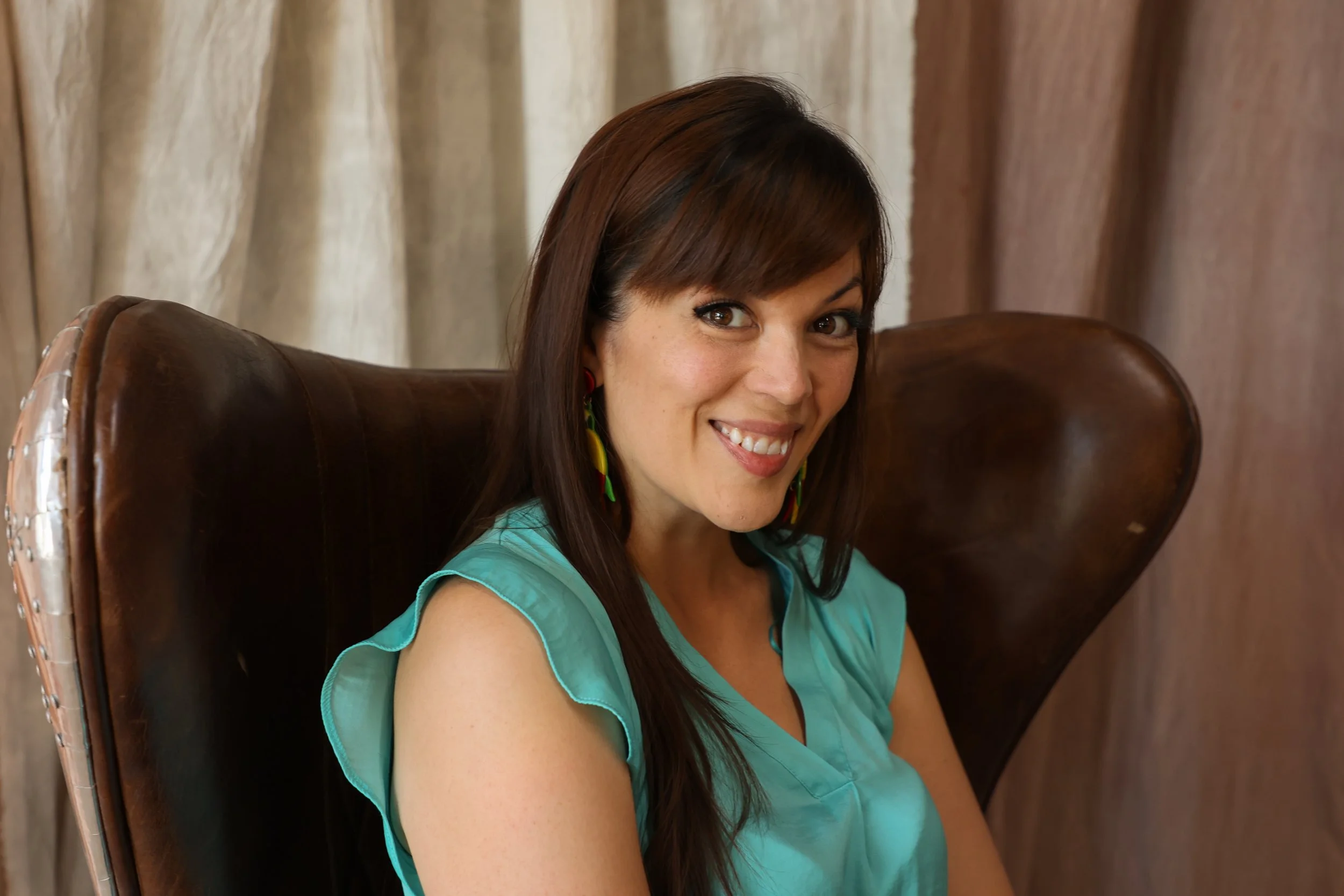Taking up Space
It had been just under a month since my boyfriend left me, and the plants he gave me for my new apartment were dying. I had a hard time admitting it to myself then, but they’d been dying since he walked through the door with them: his last offerings before what was left of our love sputtered and took its final exhale - death blooms. I looked at the Bromeliad turning from its gorgeous fuchsia hue to a yellow brown crisp, the Peace Lily dropping its virtuous white flowers, its leaves turning black, and my near-constant thoughts were affirmed: I am bad. I can’t keep things alive.
Jason and I had been dating for a year, and a couple months in he suggested we live together. We’d had a starburst courtship over the preceding weeks, and I was my fullest moonstruck self: buoyed by the possibilities of early love and all the promises it makes when I can’t stop complimenting them, or cooking for them, or giving all of myself to their commitments and their family and they think somehow, I am the perfect woman. He was in his early 40s, and I was in my late thirties, so that next step felt highly intentional and exciting, but also wrong. Steady love feels ominous when you were parented by someone with a mood disorder. I celebrated that I might have just graduated to a love that would stay, the wounds that seared my history finally closing in, but then I thought - was that just the walls? I didn’t know how to tell him that when he saw how imperfect I was, how being alone was how I stayed safe, how I didn’t know how to receive love as much as I knew how to give it, that our end was palpable, as sure and gritty as a fist full of dirt. I didn’t know exactly when we would sour, but the “best by” date of every relationship I’d had was coming, and better not have to bother with movers twice. So, I found an owner-operated condo in a questionable neighborhood in North Chicago, one side sinking slowly into the ground, paint chipping everywhere, the prior tenant’s nails for their pictures still in the walls and thought, this will do nicely. Growing up one of seven kids in a financially precarious family, my childhood a series of sleeping on couches and floors and leaving houses we couldn’t afford in the middle of the night, I was forever in a purgatory of wanting better for myself while knowing it could be worse. So, I signed enthusiastically on the dotted line.
Then: relief. Relief like expecting a hand full of spurs and meeting the touch of satin soothed me, my aloneness always lulling me to sleep like a weighted blanket. I told him on the way to an indie rock show at a record store that I would be getting a place of my own. We argued in the street, he got a poster signed by the artist, I took their picture together, we drove home in silence, and he didn’t stay the night.
There were several times during the relationship where I buckled under the weight of feeling unseen, a by-product of having emotionally supported a parent while you still had all your baby teeth. No matter how much he tried to reassure me of his love, like a high tide having its way with the shore, my biggest yet least investigated pain couldn’t stop pushing him away.
Once, when he failed to initiate love making, I felt the fear of rejection boil in me to a screaming hiss, and I turned away, shaking and crying into the wall. I discounted his every effort to try and talk me back into the space between us, furious that he didn’t know exactly what I needed, that he couldn’t read my mind. I wanted to get up and slam the door behind me like I’d observed my mother do as a child, show how powerful I was with my anger, my ire, but I didn’t want to lose him – someone - again. I turned my body back towards him from the wall and whispered. “I don’t want to be like my mom.”
At my confession he started to cry, and replied, “That’s the bravest thing I’ve ever heard you say.”
Still, no matter the number of sweet words from him that he would try to understand me or the promises from me that I would better regulate my emotional responses, nothing added up to us staying together. We took a break that turned out to be permanent, despite my asking on our last call for another try, having hung out together at my new place just long enough to eat a couple of bad take-out meals and watch the entirety of Breaking Bad with an average of two episodes a night.
On my move in day when we were still together, he was there with me, ignoring my pleas for him to join his nephew’s sixteenth birthday party, which I knew would send the resentment meter needle off the charts after I’d been his ex-girlfriend for long enough. But he insisted on being there, walking through the empty unit before the movers got there with an alternating peppering of frowns and winces. I sang the praises of the outdoor area in the back, where I planned to plant pumpkins, which I did in those first few moments, digging an inch deep trench a foot or so long, and dumping the seeds I bought into the bed, Jason looking on skeptically. “Did she say you could do that?” he asked. He meant the wife of the couple who owned the place, but I sat crouched over the earth, looking back at him, thinking he meant my mother.
I shrugged. “I guess she’s going to have to be ok with it,” I said, a veneer of confidence disguising my fear that he was right. Who was I to think I could take up space?
*
When I was eight, we lived in a tiny two-bedroom house with nine people: my six siblings, and our mom and dad. Sleeping in a room with my parents and my younger brother and sister, the only privacy I had was the big Jack and the Beanstalk tree in the huge backyard, which I retreated to often. The tree had a forked branch seat perfect for reading, and there I immersed myself in the full catalog of Beverly Cleary, looking out over the tops of other trees and living in other people’s houses, living in their worlds. There, in my imagination, I could spread my wings with full expanse: my requests for piano and voice lessons were met with a resounding yes, my questions - nonstop questions - about why the world was the way it was, delicately answered, my dream of creating music and lyrics and words for others to read, realized. The wind made the leaves of the tree dance and shimmer, and life felt so big. My solitude held multitudes and birthed a million possibilities from the silence, like when I placed my ear to a shell.
In June, our mother planted pumpkins. I don’t know how, but she knew the exact moment to put them in the ground so that the glorious yellow flowers burst forth in July, then wilted into little green bulbs in August, burgeoned into orange looking tennis balls in September, and then sat heavy on the vine, prime Jack-O-Lantern gourds in mid-October.
In other more vital ways, her discernment couldn’t be worse. When I was around four and a half years old, I remember patting her bowed and sobbing back, as I comforted her that we would have money one day, that everything would be ok. I began to see her as a tragic figure, trapped by her children and a man that stole her Beauty Queen and Broadway dreams by making her a wife and mother and then never being able to give her the life she wanted as just a carpenter working for someone else. She made of him her captor in a way, and I began to believe that this is what marriage was - a prison. Further I came to see my dad as bad and my mother his victim, but their two parts made me whole. My mother was sad. My father was bad. What did that make me?
I felt like if I could just tell my mother how beautiful she was, make her laugh, be her cheerleader, I would be safe and I would be loved. However, the support between us was not a two-way street. Because my mother gave me preference, she alienated me from not only my father but my other siblings who resented that as her confidant I was spared some of her mood swings. Then, when I needed her - to help encourage me through school difficulties, to defend me from my father’s emotional distance in his resentment of me or simply when I needed to hear I love you – on her I could not depend. Love became transactional in this way: I turned her tears into laughter, and I was good, I asked for things, and I was bad. And how selfish was I, when I knew we didn’t have enough resources, that there would never be enough to go around, to keep asking?
When we lived in that tiny house, I had a moment of inspiration and began documenting my life on lined paper, my first attempt at a memoir. I took a week to get every moment down, stapled the top left corner of the pages together after I numbered them, and gave them to my mom to read. I remember she sat on the bed my older sisters slept on at night and we used as a couch during the day, her back to the small window in the front of the house, the late afternoon sun haloing the outline of her body, reaffirming her saintly stature in my little world. I was crisscross apple sauce on the dirty carpet, imagining her glowing praise of my words like Ralphie imagines of his teacher in a Christmas Story, until she looked at me puzzled a couple of paragraphs in.
“What is this?” she asked, doing little to hide a scoff.
My cheeks burned with shame, and I had no words to give her, taking the pages back and burying them in the garbage later that night. I was bad again. Since I felt like she was my friend, to offer up the deepest embers of my heart on a platter and have her douse them with her spit, I was undone.
I look back now and see a woman deeply pained by the death of a father at eleven and a mother with mood disordered tendencies of her own. My mother kept having children because the time from when they were born until when they began talking, then having opinions, gleaning judgement, was so very short - unconditional love lasting just a few years. She was tired, and confused, and had so many dreams that failed to launch while she let life happen to her. Her pain was too big for me to fix, but I still tried to, and I was simply too green to understand how without it hurting me. That pain took up so much space, so I tried to shrink myself to a manageable emotional size, leaving my unmet needs roiling inside of me, their fever pitch reached only when I could see them projected onto the objects of my affection later in life.
When I turned nine, I tried my hand at gardening myself. Mom said okay to the cheap price of the seeds at the hardware store, but perpetually behind the sink washing dishes or the bedroom door we shared, sleeping away the afternoon, I was left to figure out planting my little garden on my own. It turns out I had a hidden green thumb: out of the dark mound in the back yard sprouted sweet sugar snap peas, lush heads of lettuce, and underneath the ground an even more glowing treasure – carrots. I pulled them, shaved them tenderly into a cup, and looked up a recipe in the red gingham covered Betty Crocker cookbook on top of the fridge. When the cake was done, I made my own frosting with powdered sugar and butter, and took a big, overly doused baking soda bite of my creation, to my bittersweet satisfaction. Next time, I thought, next time will be better, sweeter. Next time.
*
“It’s not like you’re a bad person,” Jason assured me on our breakup call.
“I’m not a bad person,” I reasserted.
“It’s not like you’re not worth it,” he replied.
“I am worth it,” I said, even believing it a little.
We spoke some months after the breakup, and both agreed that my decision to move into a place by myself instead of together was the beginning of the decline of our relationship, but the second my accordance left my lips I knew I was betraying myself again, because it was so much sooner than that.
A couple of months in to dating, but after we said I love you, we laid together in his bed with the lights off. “You know what my favorite thing about you is?” he asked, and I waited for the saccharine revelation to pull us closer together, sticky like honey, someone finally seeing me- my heart – all the things I always endeavored to give fully. “It’s that you’re always there for me,” he said, exhaled a satisfied sigh, then turned over and went to sleep. I stared at the ceiling, hallowed out, recognizing that this was all I’d ever known of love: how much I could be there for someone else; how much I could reflect them loving themselves through me.
The pumpkins I planted spread over the garden box like a weed, their thick spine-covered trunks using anything they came up against as a guide, their curly tendril-like fingers monkey-branching on to other spots to get closer to the sun. One August night, I went out under the moon and cut back their giant leaves so they didn’t overpower the other plants struggling for space, ashamed of how big my plants had become. Still, they grew, forming another generation of unstoppable vines, leaves as big as my head. Then they gave off brilliant golden flowers: one after another, but by Fall not one had turned to a gourd. How close I’d come, how very close to fruit.
I moved from the apartment where I’d nurtured old wounds to my dream neighborhood close to Lake Michigan, where I can walk to everything, and the morning sun lights up my living room. I don’t have an outdoor area or a tree to read in, but I walk around my apartment the size of the house where I first learned to grow things and realize I don’t need to run away from my life now or hide from anyone who sees it.
I often think about that little girl looking out at the tops of trees and a garden below, where life had yet to unfold except for in her small hands. Sometimes, I want to sit with her and ask for her wisdom; how did she have the courage to do things that no one ever taught her? I want to ask her how when she pulled roots she grew herself from darkness beneath the earth and turned them into a cake that she baked herself - when it wasn’t perfect, how did she find the courage to try and try again?
I look at my living room full of plants that twist and curl and tell me less sun or coo for more water, and I wonder how we get it right.
-Candace Angelica Walsh
Candace Angelica Walsh is a poet, nonfiction writer, playwright and performer originally from California, now residing in Chicago. She is a Best of the Net Nominee, a 2023 Story Studio Chicago Nonfiction Fellow, and a New Ohio Review Ellis Nonfiction Prize finalist. Her work appears in River Teeth, Midwest Review, The Journal of Latina Critical Feminism, and elsewhere. When not writing, she produces the Chicago Chapter of Poetry Brothel, an immersive theater creation of the Poetry Society of New York.




